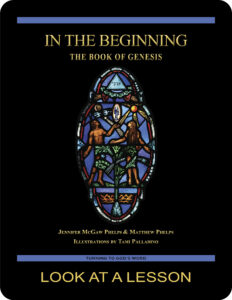brothers
 In the Gospel According to Luke 8:19 (NABRE), among other passages, we see mention of Jesus’ brothers. The exact translation of these passages is important because of the Catholic belief in the perpetual virginity of Mary. The Greek word used here is ἀδελφός (adelphos), literally meaning “from the same womb.” If adelphos is being used literally here, there’s a serious problem with Catholic teaching, so it’s useful to clarify exactly what this text is saying.
In the Gospel According to Luke 8:19 (NABRE), among other passages, we see mention of Jesus’ brothers. The exact translation of these passages is important because of the Catholic belief in the perpetual virginity of Mary. The Greek word used here is ἀδελφός (adelphos), literally meaning “from the same womb.” If adelphos is being used literally here, there’s a serious problem with Catholic teaching, so it’s useful to clarify exactly what this text is saying.
In the Gospel According to Luke, it’s possible to identify two different meanings of adelphos based on context. The Gospel According to Luke 14:12 (NABRE) states “… do not invite your friends or your brothers or your relatives or your wealthy neighbors … .” Here we see aldelphos appear distinct from the Greek word συγγενής (sungenes), which means “relative” or “kin in general,” and from φίλος (philos), which means “friend.” This and similar passages use adelphos to refer to an inner family circle.
The passage in question, the Gospel According to Luke 8:19 (NABRE), records: “the mother of Jesus and his brothers came to him but were unable to join him because of the crowd.” Here the context strongly favors the view that adelphos is being used in a familial sense. What remains to be determined, then, is the exact nature of this familial relationship.
It also here should be noted that Greek has a word that means cousin as well, ἀνεψιός (anepsios), which appears only one time in the entirety of the New Testament in the Letter to the Colossians 4:10 (NABRE), and only three times in the Septuagint, the translation of he Hebrew Scriptures into Greek. What this scarcity suggests is a different mindset on the part of the biblical authors about the nature of family.
Our culture defines family as a blood relationship, but we can see that in Jewish tradition, family was viewed as a legal institution. The book of Deuteronomy 25:5 (NABRE) states: “When brothers live together and one of them dies without a son, the widow of the deceased shall not marry anyone outside the family; but her husband’s brother shall come to her, marrying her and performing the duty of a brother-in-law.” From this, we see lineage is defined in legal terms rather than specifically by parentage. Moreover, the story of Ruth and Boaz in the Book of Ruth shows that the duty described in the book of Deuteronomy applies to a broader set of family than what we refer to as brothers.
It is by this legalistic view of family that we’re able to call Jesus the son of Joseph and heir of the house of David when Joseph was not his birth father. This same reasoning also would define as Jesus’ brothers those who were close to him in this legalistic family chair regardless of direct blood relationship. So in the Gospel According to Luke 8:19 (NABRE), the use of the word adelphos does not necessarily refer to the blood relationship that we know as brothers but to a specific legal status, and the exact blood relationship remains unclear.
related topics: neighbor; philia & agape
you also may like our study of the book of Genesis
 The first seven lessons of In the Beginning: The Book of Genesis, a 28-lesson Catholic Bible study with an imprimatur, provide an in-depth look at the very earliest biblical history—including the two accounts of Creation, events surrounding the Fall of Adam and Eve, the relationship between Cain and Abel, and the baptismal foreshadowing present in the account of Noah and the Flood. Remaining lessons look at lives of the patriarchs Abraham, Isaac, Jacob, and Joseph. Click on the book’s cover to view a sample lesson.
The first seven lessons of In the Beginning: The Book of Genesis, a 28-lesson Catholic Bible study with an imprimatur, provide an in-depth look at the very earliest biblical history—including the two accounts of Creation, events surrounding the Fall of Adam and Eve, the relationship between Cain and Abel, and the baptismal foreshadowing present in the account of Noah and the Flood. Remaining lessons look at lives of the patriarchs Abraham, Isaac, Jacob, and Joseph. Click on the book’s cover to view a sample lesson.
 Click on the picture of the statue of Moses with horns (above) to learn more about Lost in Translation. A new entry is archived each Monday. Contact us to receive Lost in Translation by email every week. You may use any of the contact links on our website to ask Matthew a question.
Click on the picture of the statue of Moses with horns (above) to learn more about Lost in Translation. A new entry is archived each Monday. Contact us to receive Lost in Translation by email every week. You may use any of the contact links on our website to ask Matthew a question.

Leave a Reply
You must be logged in to post a comment.